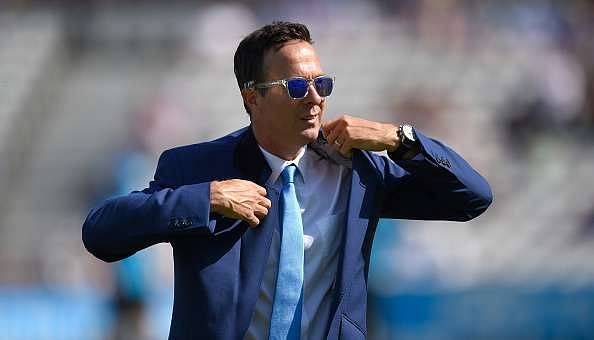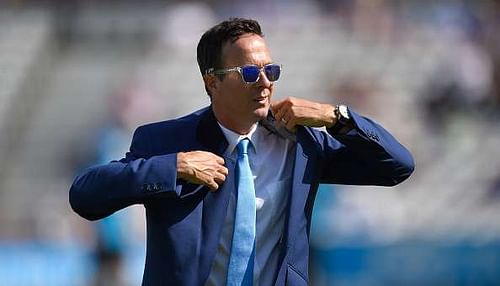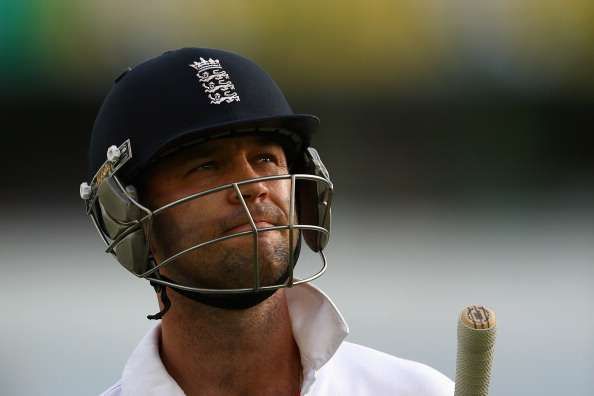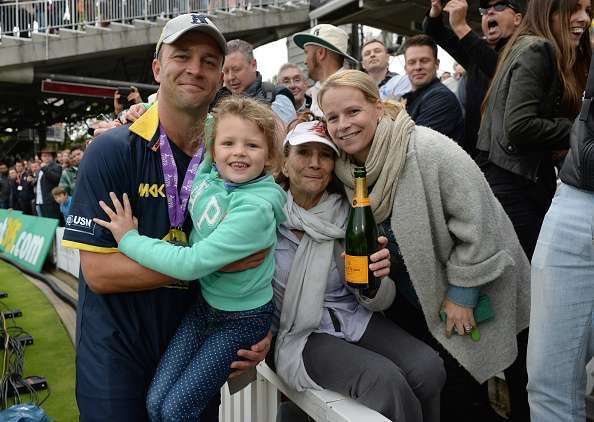
Jonathan Trott reflects on Michael Vaughan's stinging hatred and bullying attitude
While all the adulation and monetary benefits of being an international sportsman often create envy among those caught up in the monotony of day to day life, the constant scrutiny, as well as responsibilities thrust upon them, has a strong case for suggesting otherwise. In this regard, former England batsman Jonathan Trott’s case seems to be an eye-opener into the glamorous yet unforgiving world of top-level sport.
Having retired from the international circuit in the aftermath of an unsuccessful comeback last year, the doughty right-hander has looked back at his days under the spotlight in an autobiography titled Unguarded. In an extract published by The Times, Trott questions Ashes-winning skipper Michael Vaughan’s credentials and integrity as an analyst for making repulsive remarks during his issues with a stress-related illness.
Trott fires, “It’s funny. Michael Vaughan and I both batted at No 3 for England with reasonable success but it is almost the only thing we have in common. I have a bald head and chipped teeth; he has new hair and suddenly has brilliant white teeth. I think that’s a pretty reasonable reflection of our differing characters. My poor relationship with him had its roots in an incident from years earlier.”
He adds, “In his book — published towards the end of 2009 — he said he saw me celebrating with South Africa’s players after they defeated England at Edgbaston in 2008. The inference was that I was not truly committed to England. Indeed, he claimed it was ‘a sad day for English cricket’. It was rubbish. There were several guys playing in that match who I considered good friends — guys on both sides — but there was no question that I wanted England to win.”
Do personal bias and business interests come in the way of analysis?
The tipping point in Trott’s well-documented troubles with stress began in the 2013/14 Ashes during which England were ripped apart by a ferocious Australian bowling unit led by a moustachioed Mitchell Johnson. Having had to spend a long time away from his family, the intense media pressure also played its part in causing him to suffer a major break down and he eventually pulled out of the tour following the opening Test at the Gabba.
With reports of a tense dressing atmosphere shedding light on a culture of bullying by a few senior bowlers, the majority of responses from various quarters regarding the situation seemed to back the beleaguered batsman. However, Vaughan chose to look at in a different way and claimed that he was ‘conned’ by the Cape Town-born cricketer masking poor performances with the excuse of depression.
Also Read: Athletes and their never-ending battle with depression
Trott asserts, “Isn’t it? Are burnout and stress mutually exclusive? Could one not contribute to the other? Can they not co-exist? Are the definitions so black and white? If you drew a Venn diagram of the situation, would there be no overlap? Might the burnout issue have exacerbated the stress-related problem?
“Does a player have to be suffering from depression, not any other form of mental distress, to gain any understanding?“
“I began to question if he had an agenda as well. As well as being a high-profile summarizer for the BBC and analyst for the Telegraph, he was also Business Development Manager for ISM, a sports management agency. ISM had an interest in several players on the verge of the England sides.
“So if I was out of the way — and Vaughan’s scorn for my condition made it quite clear that he thought I should be banished for ever — might there be more room in the side for the likes of Joe Root, Jonny Bairstow, Scott Borthwick and Ben Stokes?”
A legacy riddled with thorns
For a man who was a key part of a successful era for England’s Test team and named ICC Player of the Year in 2011, the fire inside Trott‘s mindset did not cease despite his off-field troubles. He even ventured a return to the all too familiar grind in an attempt to target an international comeback which however did not end on a happy note. Acknowledging that his time was up, the focus began to turn to the confines of County cricket.
Trott admits, “I realized that, whatever else I achieved, I was going to be remembered not as the man who scored a century on Test debut, not as part of the Ashes-winning sides of 2009, 2010–11 or 2013, not as one of the few England players to win the ICC Player of the Year award, but as the guy who fled from the 2013–14 Ashes.”
Whilst placing cricketers on completely different pedestals as the expectations keep rising rapidly, the circumstances surrounding them must also be taken into account before their performances are placed under the microscope.


